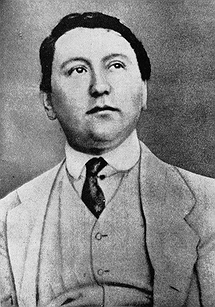به ازای هر نفری که با دعوت شما در منظوم ثبتنام میکنند 20 امتیاز میگیرید.
لینک دعوت:


In 1907 he became involved in the anarchist movement, which brought him to the attention of the Austrian secret police, resulting in his being arrested and imprisoned several times for his political activities. That same year he met a young woman named Jarmila Mayerova, and the two decided to get married. However, her parents did not approve of him--especially his politics--and would not sanction their marriage. Hasek resolved to distance himself from his political activities and concentrate on his writing in order to win her parents' approval, but when he was arrested for vandalizing an Austrian flag, her parents moved her from Prague far out into the country, hoping that the distance would eventually break up the couple. It didn't work, though, and the two were married in 1910. Unfortunately, it didn't work out and she moved back with her parents in less than a year.
In 1914, on the outbreak of World War I, Hasek was drafted into the Austro-Hungarian army and sent to the Russian front. He was captured by the Russians in 1915 and sent to a prisoner-of-war camp, where he contracted typhus, but he eventually recovered. At the camp he was recruited into an outfit called The Czech Legion, a unit put together by the Russians consisting of Czech POWs who agreed to fight the Austrians. At the end of the war he left the Czech Legion but joined the Red Army, mainly as a recruiter and propagandist. In 1920 he remarried, although he was still technically married to Jarmila.
In 1920 he returned to Prague, but his health had severely deteriorated and he was grossly overweight. He began working on a book of his that had originally been published in 1912, called "The Good Soldier Schweik and Other Strange Stories", about the adventures of a good-natured but not particularly bright soldier named Schweik who looked on his army time as basically a lark. He now began to rewrite and add new chapters to the book, giving it a somewhat darker tone due to his own wartime experiences, but his health kept getting worse and he wound up dictating the new chapters to an assistant because he could not actually perform the physical task of writing. He died of heart failure in the Czech village of Lipnice on Jan. 23, 1923. His final work, now called "The Good Soldier Schweik", has become a classic in European literature, and has been successfully adapted on stage and in film many times.